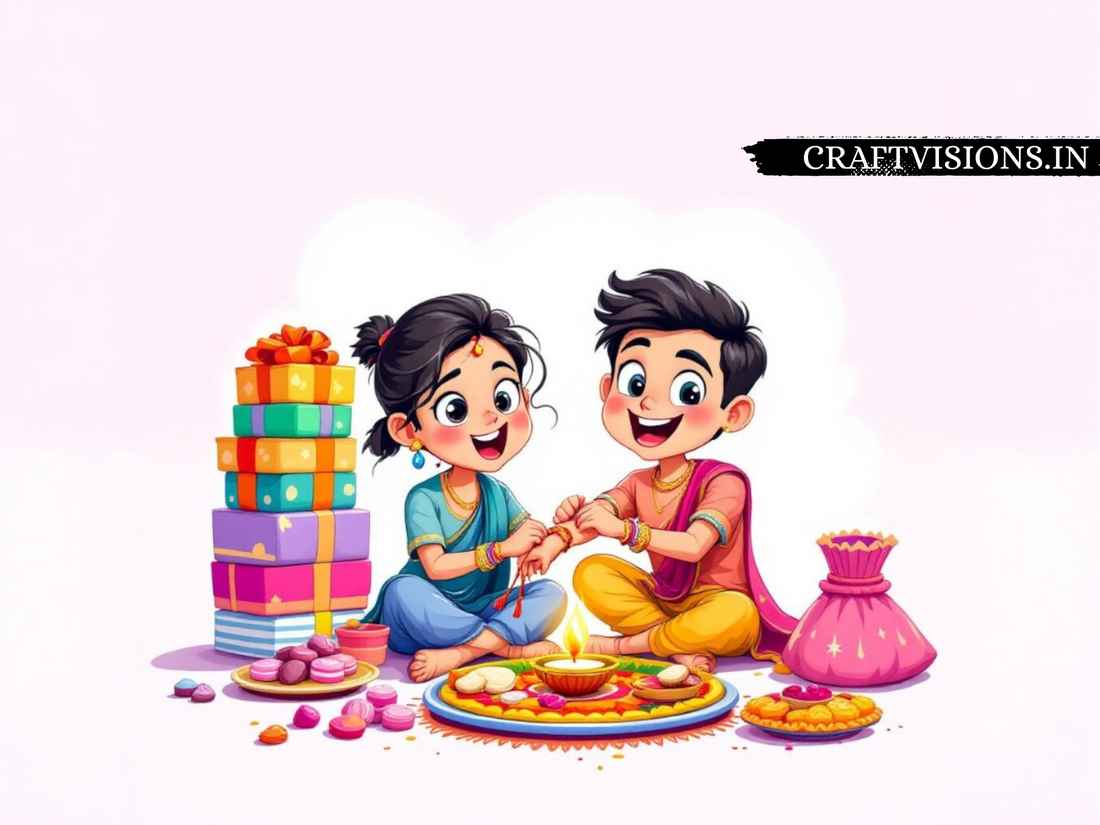
Deeper Meaning Behind Rakshabandhan
Share
Rakshabandhan, often simply called Rakhi, is one of India’s most cherished festivals — a beautiful celebration of the sacred bond between brothers and sisters. But beyond the rituals and rakhis, this day holds deep cultural and spiritual meaning rooted in ancient traditions.
Celebrated on the full moon day (Purnima) of the Hindu month of Shravan, Rakshabandhan signfies protection (Raksha) and bond (Bandhan). Sisters tie a rakhi on their brothers’ wrists, praying for their well-being, and in return, brothers promise to protect their sisters and stand by them in all walks of life.
Deeper Meaning Behind Rakshabandhan
1️⃣ Spiritual Symbolism
The thread is not just decorative — it’s a sacred promise of emotional, moral, and spiritual protection. In many traditions, even priests tie rakhis to devotees, and wives tie it to husbands or even the peepal tree as a gesture of seeking divine protection.
2️⃣ Mythological Connections
The festival has ties to many legends: Draupadi tying a rakhi to Lord Krishna, Indrani tying a sacred thread to Lord Indra before battle — each signifying the power of faith and protection.
3️⃣ Celebration of Love & Unity
Rakshabandhan is also a reminder that relationships, when built on trust and devotion, become a source of strength. It nurturs harmony not just within families but across communities.
4️⃣ Modern Relevance
Today, Rakshabandhan transcends blood relations — people tie rakhi to soldiers, teachers, or anyone they respect and trust. It’s a festival of gratitude, respect, and shared joy.
Celebrate Rakshabandhan with Spiritual Gifts from CraftVisions
Mark the day with something truly divine. Explore our collection of Rakhi-special idols, rudraksha bracelets, spiritual pendants, and handcrafted gift sets — perfect for showing love and blessings to your siblings.